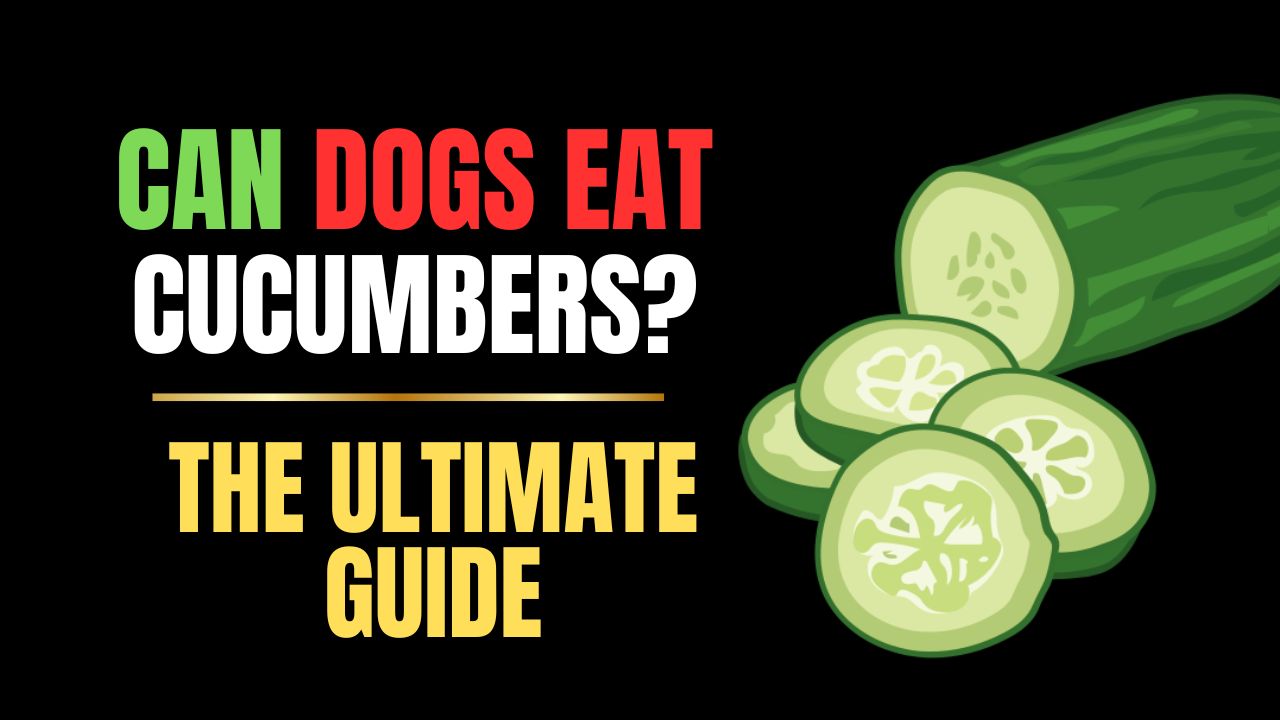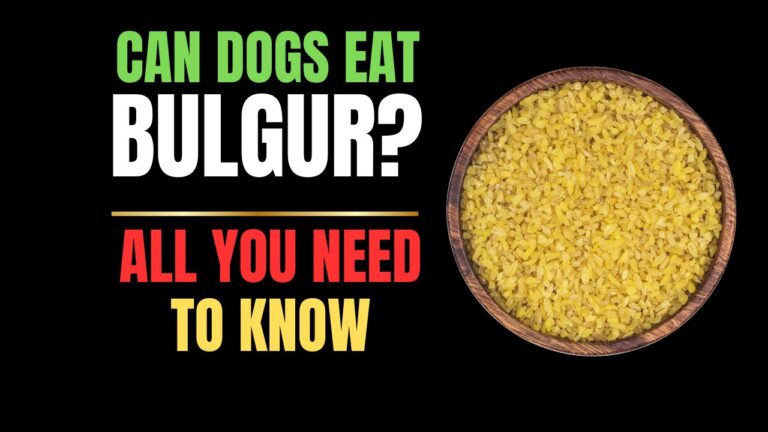
Can Dogs Eat Cucumbers?
As pet owners increasingly seek healthy, low-calorie alternatives to commercial dog treats, cucumbers have emerged as a popular option. These crunchy, hydrating vegetables offer numerous health benefits while satisfying dogs' natural chewing instincts. But are they truly safe for canine consumption?
The straightforward answer is yes — cucumbers are not only safe for most dogs but can be an excellent addition to their diet when prepared properly. With their high water content, minimal calories, and valuable nutrients, cucumbers represent one of the healthiest treat options available for weight-conscious dogs.
This comprehensive guide covers everything you need to know about feeding cucumbers to your dog, from preparation techniques and portion sizes to potential risks and creative serving ideas. Whether you're looking to help your dog lose weight or simply provide a refreshing, healthy snack, this guide will help you make informed decisions about incorporating cucumbers into your dog's diet.
Introduction
Cucumbers are not only safe for most dogs but can be an excellent low-calorie treat option that provides hydration and essential nutrients. Their crisp texture and mild flavor make them appealing to many dogs, while their nutritional profile supports overall health.
Why Cucumbers Are Ideal for Weight Management
Cucumbers have become increasingly popular as dog treats due to their exceptionally low calorie content. With approximately 95% water and only 8 calories per half-cup serving, cucumbers provide volume and satisfaction without contributing significantly to daily caloric intake. This makes them particularly valuable for dogs on weight loss programs or those prone to obesity. The satisfying crunch also helps clean teeth and satisfies chewing urges without the dental risks associated with harder treats.
The Short Answer
Yes, dogs can eat cucumbers. Fresh, plain cucumber flesh is safe, nutritious, and generally well-tolerated by most dogs. However, proper preparation is essential, and portion control should be maintained despite the low calorie content.
| Safety Level | Recommended Preparation | Key Considerations |
|---|---|---|
| Very Safe | Fresh, washed, cut into appropriate sizes | Remove seeds for some dogs, watch for choking |
| Excellent for Weight Control | Small portions based on dog size | Low calorie but still counts toward 10% treat rule |
| Introduction | Start with small amounts | Monitor for any digestive sensitivity |
Nutritional Benefits of Cucumbers for Dogs
Cucumbers offer several nutritional advantages that make them a superior treat option for dogs, particularly those with weight concerns or hydration needs.
Hydration Powerhouse
95% Water
With extremely high water content, cucumbers help keep dogs hydrated, especially during warm weather or for dogs who don't drink enough water. This makes them an excellent treat for active dogs or those with kidney concerns.
Perfect summer refreshment
Ultra Low-Calorie
Only 8 Calories per 1/2 Cup
Cucumbers provide one of the lowest calorie treat options available, making them ideal for weight management programs. Dogs can enjoy relatively large portions without significant caloric impact.
Weight-conscious pups
Nutrient Rich
Vitamin K, Potassium & More
Cucumbers contain vitamin K, potassium, magnesium, and small amounts of vitamin C. They also provide silica, which supports joint health and connective tissue.
Overall health support
Nutritional Breakdown
Veterinary Perspective
According to veterinary nutritionists, cucumbers represent one of the safest and most beneficial treat options for dogs, particularly those struggling with weight management. The high water content supports hydration without adding significant calories, while the mild fiber content aids digestion without causing gastrointestinal upset. The crunchiness provides dental benefits by helping to clean teeth naturally. However, even with low-calorie treats, the 10% rule should still be followed to maintain nutritional balance.
Which Parts Are Safe vs Dangerous
While cucumbers are generally very safe for dogs, proper preparation ensures maximum safety and digestibility.
Safe Parts
| Part | Safety Level | Preparation Notes |
|---|---|---|
| Flesh | Very Safe | Washed, peeled if desired, cut into appropriate sizes |
| Skin | Generally Safe | Wash thoroughly, organic preferred, may be hard to digest for some dogs |
Parts to Use Caution With
| Part | Risk Level | Potential Concerns |
|---|---|---|
| Seeds | Low Risk | Generally safe but may cause issues in large quantities or for sensitive dogs |
| Pickled Cucumbers | Moderate Risk | High sodium content, potential spices, vinegar content |
| Seasoned Cucumbers | Moderate Risk | Onion, garlic, salt, or other seasonings may be toxic |
The Pickle Problem
Never feed pickled cucumbers or pickles to your dog. The pickling process involves high amounts of sodium, vinegar, and often includes garlic, onions, or other seasonings that can be harmful to dogs. The excessive salt content can lead to sodium ion poisoning, which causes symptoms like vomiting, diarrhea, tremors, and in severe cases, can be fatal. Always stick to fresh, plain cucumbers.
Safe Preparation Checklist
- Wash cucumbers thoroughly to remove pesticides and dirt
- Consider peeling, especially for dogs with sensitive digestion
- Remove seeds if your dog has a sensitive stomach
- Cut into appropriate sizes based on your dog's chewing style
- Always serve plain, without salt, seasonings, or dressings
- Introduce gradually to assess tolerance
How Much Cucumber Can Your Dog Eat?
While cucumbers are low in calories, portion control is still important to maintain nutritional balance and prevent digestive issues.
Portion Size by Dog Weight
| Dog Weight | Recommended Portion | Frequency |
|---|---|---|
| 5-10 lbs | 2-3 thin slices | Daily or as needed |
| 11-25 lbs | 4-6 thin slices or 2-3 chunks | Daily or as needed |
| 26-50 lbs | 1/4 - 1/2 cup pieces | Daily or as needed |
| 51-100 lbs | 1/2 - 1 cup pieces | Daily or as needed |
| 100+ lbs | 1-2 cups pieces | Daily or as needed |
The 10% Treat Rule Still Applies
Even though cucumbers are low in calories, they should still be factored into the 10% treat rule. The remaining 90% of your dog's diet should come from their complete and balanced regular dog food. Cucumbers, while nutritious, don't provide complete nutrition and should complement rather than replace balanced meals.
Special Considerations
Puppies can enjoy small amounts of cucumber once they're eating solid food regularly. The soft texture when cut appropriately makes them suitable for puppies. Senior dogs often benefit from cucumbers due to the hydration support and easy digestibility. For dogs with kidney issues, the high water content can be particularly beneficial, but always consult your veterinarian first. Dogs with known food sensitivities should be introduced to cucumbers gradually.
Calculating Your Dog's Treat Allowance
To determine how cucumber fits within your dog's diet:
- Check your dog food packaging for daily feeding guidelines based on weight
- Calculate 10% of those daily calories - this is your treat allowance
- Remember that cucumbers contain only about 16 calories per cup
- You can be more generous with cucumber portions compared to higher-calorie treats
Step-by-Step: Creative Ways to Serve Cucumbers
There are numerous safe and enjoyable ways to serve cucumbers to your dog, from simple fresh slices to engaging frozen treats.
Fresh Slices or Chunks
The simplest method is to serve fresh, washed cucumber slices or chunks. Ensure pieces are appropriate for your dog's size and chewing style. This method preserves all the natural nutrients and provides a satisfying crunch that many dogs enjoy.
Frozen Cucumber Chips
Frozen cucumber slices make excellent low-calorie treats for hot days or teething puppies. Simply slice cucumbers thinly, place them on a baking sheet lined with parchment paper, and freeze until solid. These provide hydration and cooling relief simultaneously.
Cucumber Puree for Kongs or Slow Feeders
For mental stimulation, blend cucumber with a small amount of water or low-sodium broth, then freeze in Kong toys or slow feeder bowls. This provides extended enjoyment and helps prevent rapid eating.
Cucumber "Cookies"
Use small cookie cutters to create fun shapes from cucumber slices. These make excellent training treats due to their low calorie content, allowing for frequent rewards without overfeeding.
Important Safety Notes
Always monitor your dog when introducing new foods, including cucumbers. While the risk is low, some dogs might choke on pieces that are too large for their size. Additionally, dogs that gulp their food without chewing properly may benefit from larger, more substantial pieces that encourage chewing. Always consider your individual dog's eating style and adjust portion sizes accordingly.
Recipes American Dog Owners Love
These simple, dog-safe recipes incorporate cucumbers in creative ways that provide both nutrition and enjoyment.
Cucumber Yogurt Pupsicles
This refreshing recipe combines the cooling properties of cucumber with probiotic-rich yogurt.
- Ingredients: 1 cup peeled, seeded cucumber, 1/2 cup plain Greek yogurt, 1/4 cup water
- Instructions: Blend all ingredients until smooth. Pour into ice cube trays or silicone molds. Freeze for at least 4 hours until solid.
- Serving size: 1-2 cubes depending on dog size
Cucumber-Chicken Hydration Bites
A protein-packed treat that provides both nutrition and hydration.
- Ingredients: 1/2 cup finely diced cucumber, 1/2 cup cooked chicken (shredded), 1 tablespoon plain yogurt
- Instructions: Mix all ingredients together. Form into small balls and serve immediately or refrigerate.
- Serving suggestion: Great for post-exercise hydration and protein replenishment
Cucumber Mint Breath Fresheners
Natural breath freshening treats that also provide hydration.
- Ingredients: 1 cup cucumber puree, 1/4 cup chopped fresh mint, 1/2 cup oat flour
- Instructions: Mix ingredients to form a thick paste. Drop by teaspoon onto a baking sheet and dehydrate at low temperature or bake at 200°F for 2 hours until chewy.
- Note: Store in airtight container in refrigerator
Recipe Safety Tips
When preparing homemade dog treats, always use dog-safe ingredients. Avoid anything containing xylitol, chocolate, grapes, raisins, onions, garlic, or excessive salt. While the recipes above are generally safe, remember that each dog is unique. Introduce new foods gradually and watch for any signs of digestive upset or allergic reactions. Always consult your veterinarian if you have concerns about specific ingredients for your dog.
Risks & Warning Signs
While cucumbers are generally very safe for dogs, there are minimal risks to be aware of and warning signs to watch for.
Digestive Issues
Mild & Rare
Some dogs might experience mild digestive upset if they consume large quantities too quickly. The high water and fiber content may cause loose stools in sensitive individuals.
Introduce gradually
Allergic Reactions
Extremely Rare
While highly uncommon, some dogs may have individual sensitivities to cucumbers. Watch for itching, digestive issues, or other unusual symptoms after introduction.
Monitor after first serving
Choking Hazard
Size-Dependent Risk
Improperly sized pieces can pose choking risks, particularly for dogs that gulp their food without chewing. Always cut pieces appropriate for your dog's size and eating style.
Proper sizing crucial
Warning Signs to Watch For
| Symptom | Possible Cause | Action to Take |
|---|---|---|
| Mild Diarrhea | Too much cucumber or sensitive stomach | Reduce quantity, introduce more gradually |
| Choking | Piece too large or gulping behavior | Learn canine CPR, cut smaller pieces, monitor eating |
| Gas or Bloating | Digestive sensitivity | Reduce quantity, consider peeling and seeding |
| Allergic Reaction | Rare individual sensitivity | Discontinue immediately, consult vet if severe |
When to Contact Your Veterinarian
Contact your veterinarian if your dog shows signs of a severe allergic reaction, has persistent digestive issues, appears in pain, or if you suspect choking or intestinal blockage (though this is extremely rare with cucumbers). While cucumbers pose minimal risks, it's always better to err on the side of caution when it comes to your dog's health. Additionally, if your dog has specific health conditions, consult your vet before making significant dietary changes.
Best Store-Bought Cucumber Dog Treats (USA 2025 Favorites)
For dog owners who prefer commercial treats, several high-quality options feature cucumber or similar hydrating vegetables.
Freeze-Dried Options
| Brand & Product | Key Features | Where to Buy |
|---|---|---|
| Stella & Chewy's Freeze-Dried Veggie Mix | Includes cucumber, no additives, single ingredient | Chewy, Amazon, pet specialty stores |
| Whole Life Pet Freeze-Dried Cucumber | Pure cucumber, human-grade ingredients | Chewy, independent pet stores |
Dehydrated & Baked Options
| Brand & Product | Key Features | Where to Buy |
|---|---|---|
| Bocce's Bakery Cucumber Mint | Baked treats with cucumber, mint for fresh breath | Chewy, Amazon, Target |
| Wellness Pure Rewards Dehydrated Cucumber | Single ingredient, USA sourced | Petco, Chewy, Amazon |
Reading Ingredient Labels
When selecting commercial cucumber treats, always read the ingredient list carefully. Look for products with cucumber as the first ingredient and avoid those with added sugars, salts, or artificial preservatives. The best options will have a short, recognizable ingredient list. Remember that even with healthy commercial treats, portion control is still important to maintain nutritional balance in your dog's diet.
Frequently Asked Questions
Yes, most dogs can eat cucumber skin, provided it's thoroughly washed to remove pesticides and dirt. However, some dogs with sensitive digestion may have difficulty processing the skin, which is tougher and contains more fiber than the flesh. If you're introducing cucumbers for the first time, you might want to peel them initially, then gradually introduce small amounts of skin to see how your dog tolerates it. Organic cucumbers are preferable if feeding with skin intact.
Both cucumbers and carrots are excellent treat options for dogs, but they serve slightly different purposes. Cucumbers are lower in calories (8 calories per half cup vs 25 calories for carrots) and higher in water content, making them ideal for weight loss and hydration. Carrots contain more vitamins and fiber, and their crunchiness provides better dental cleaning. Many dog owners use both - cucumbers for low-calorie hydration and carrots for dental health and additional nutrients. The choice depends on your dog's specific needs and preferences.
If your dog has consumed a whole cucumber, don't panic. While this is more than recommended, cucumbers are mostly water and pose minimal risk. Monitor your dog for the next 24 hours for any signs of digestive upset like diarrhea or vomiting. Your dog might drink less water than usual since they've consumed significant hydration from the cucumber. Reduce their next meal slightly to account for the extra volume, and ensure they have opportunities to relieve themselves frequently. Contact your veterinarian if you notice any concerning symptoms or if your dog appears uncomfortable.
Yes, puppies can have small amounts of cucumber once they are regularly eating solid food, typically around 8 weeks of age. The soft texture when cut appropriately makes cucumbers suitable for puppies. Introduce them gradually in tiny amounts to ensure tolerance. Puppies have developing digestive systems, so watch for any signs of upset. Cucumbers can be particularly useful for teething puppies when frozen, as the cold helps soothe sore gums. Remember that puppies have specific nutritional needs for growth, so treats should be an even smaller percentage of their overall diet compared to adult dogs.
For most dogs, cucumber seeds are perfectly safe and digestible. However, for dogs with sensitive stomachs or those prone to digestive issues, removing the seeds might help prevent any potential upset. The seeds contain most of the cucumber's fiber content, which can sometimes cause gas or loose stools in sensitive individuals. If you're introducing cucumbers for the first time, you might want to remove seeds initially, then gradually introduce them to see how your dog responds. For regular consumption with a dog who tolerates them well, seeds can be left in.
While cucumbers are safe for most dogs, those with specific health conditions might need modifications. Dogs with kidney disease should have their cucumber intake monitored by a veterinarian, as the potassium content, while not high, needs consideration in renal diets. Dogs with known food allergies or extremely sensitive stomachs should be introduced to cucumbers cautiously. Additionally, dogs that tend to gulp their food without chewing properly may need cucumbers cut into very specific sizes to prevent choking. Always consult with your veterinarian before introducing new foods if your dog has existing health conditions.
No, you should not feed pickles to your dog. The pickling process involves high amounts of sodium, vinegar, and often includes garlic, onions, or other seasonings that can be harmful to dogs. The excessive salt content can lead to sodium ion poisoning, which causes symptoms like vomiting, diarrhea, excessive thirst, tremors, and in severe cases, can be fatal. Additionally, the vinegar and spices can cause digestive upset. Always stick to fresh, plain cucumbers without any added seasonings, salt, or pickling solutions.
Free Printable "Safe Vegetables for Dogs" Chart
To help you quickly reference which vegetables are safe for your dog, we've created this comprehensive chart that includes cucumbers and 15 other common vegetables.
How to Use This Chart
This chart provides a quick reference for which vegetables are safe, which should be avoided, and important preparation notes for each. You can print it and keep it on your refrigerator or in your pet care folder for easy reference when shopping for groceries or preparing snacks for your dog.
Safe Vegetables for Dogs Reference Chart
| Vegetable | Safety Level | Preparation Notes |
|---|---|---|
| Broccoli | Safe | Small amounts, can cause gas in large quantities |
| Carrots | Very Safe | Raw or cooked, excellent for dental health |
| Celery | Safe | Cut into small pieces, can be stringy |
| Cucumbers | Very Safe | Low calorie, high hydration, cut appropriately |
| Green Beans | Very Safe | Raw, steamed, or canned (no salt) |
| Lettuce | Safe | Most types safe, mainly water content |
| Peas | Safe | Fresh or frozen, no canned with salt |
| Potatoes | Cooked Only | Never raw, cooked plain without additives |
| Pumpkin | Very Safe | Cooked, plain, excellent for digestion |
| Spinach | Limited | Small amounts, contains oxalates |
| Sweet Potatoes | Very Safe | Cooked, plain, excellent nutrient source |
| Zucchini | Very Safe | Raw or cooked, similar to cucumber |
| Onions | Dangerous | Toxic, can cause hemolytic anemia |
| Garlic | Dangerous | Toxic, even in small amounts |
| Mushrooms | Avoid | Only specific store-bought types, avoid wild |
Conclusion: Final Verdict on Cucumbers for Dogs
Cucumbers represent one of the safest and most beneficial treat options available for dogs. Their exceptional water content, minimal calorie count, and valuable nutrients make them an ideal choice for weight management, hydration support, and overall health.
Remember the key preparation guidelines: always wash thoroughly, cut into appropriate sizes for your dog, and serve plain without any seasonings or pickling. While cucumbers are very safe, they should still be introduced gradually and fed in moderation as part of a balanced diet.
Cucumbers are particularly valuable for overweight dogs, senior dogs needing hydration support, and as cooling treats during warm weather. Their versatility in preparation—from fresh slices to frozen treats and recipe ingredients—makes them adaptable to various feeding strategies and dog preferences.
When in doubt, consult with your veterinarian about incorporating new foods into your dog's diet. With proper preparation and reasonable portions, cucumbers can be a regular, healthy addition to your dog's treat rotation that supports their wellbeing without adding unnecessary calories.
We'd love to see your pup enjoying their cucumber treats! Share photos of your dog with their favorite cucumber snacks in the comments below or tag us on social media.
In the Spotlight
About the Author
Samantha Henson
Author
Samantha (Shipley) Henson — Award-winning Clinical Pet Nutritionist and Founder of Next Generation Pet Wellness, dedicated to improving pet health through science-based nutrition. With 15+ years of experience, she’s helped over 750,000 pets worldwide and aims to reach 1 million.











